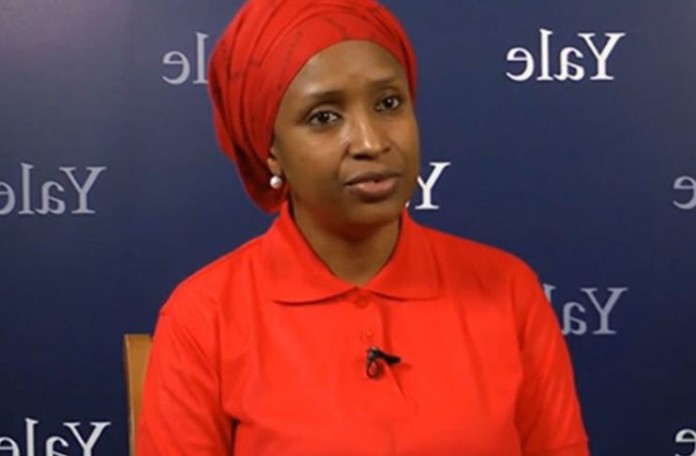Stakeholders in the maritime sector have decried the inability of the Nigeria Shippers Council (NSC) to live up to its expectation as the ombudsman of the ports given the prevailing problems still confronting users of the ports.
The unhealthy operational environment at the nation’s ports which instigated the establishment of the Nigeria’s Shippers Council, has not eased. Rather, it has resulted to loss of patronage over the years because of high charges, inefficiency and lack of transparency by terminal operators.
Prominent maritime players and analysts have in recent times expressed concern over the prevailing high cost of doing business in the Nigeria ports, which underlines the argument by many that the Nigeria Shippers Council has failed in its objective of bringing down cost of clearing goods in the nation’s Ports.
The founder of National Association of Government Approved Freight Forwarders (NAGAFF), Dr. Boniface Aniebulam, who was a strong asked for a regulator to curb the excesses of the port terminal operators whose regime as concessionaires at the ports escalated the cost of doing business, is also disappointed that the Nigeria Shippers Council have not been able to address the issue of high cost of doing business at the ports.
“The essence of port reform was to achieve competitive cost of doing business, port administration and management. However, at the inception of the concession, it was expected that there would be a 30 percent reduction in the cost of doing business at the ports. But 10 years after, the cost of doing business is still unbearable”
Lucky Amiwero, National President, Council of Managing Directors of Customs Agents said that Nigeria missed it from the onset when the ports were concession without requisite regulatory body.
According to him, one of the consequences of such omission is the loss of cargo to ports of neighbouring countries because the cost of doing business in our ports is high.
Olisa Agbakoba, Senior Advocate of Nigeria, (SAN) and maritime lawyer, said that his position was that the 10-year-old concession regime in the nation’s ports has failed in its original objective of making Nigerian ports cost effective.
He reiterated that the cost of doing business at Nigerian port is still the highest in the world and that it had remained so 10 years after the ports were concession because of the absence of an effective regulator.
Otunba Kunle Folarin, the chairman of Port Consultative Forum said that the objective of port concession was to reduce cost of doing business at the ports, increase productivity, as well as conserve public fund.
Although he admitted that there has been significant increase in productivity and infrastructural development but that the cost of doing business has not reduced thereby underlining the fact the appointment of Nigeria Shippers Council as a regulator has also not achieved the desired objective.
For instance, investigation shows that before the ports were concession, the first six days of demurrage attracted a fee of N95 per day for a 20 feet container but was increased to N900 per day.
Again when the demurrage enters the second phase of six days, under the NPA the importer was to pay N250 daily but the amount shoot up to N4, 200 under the terminal operators. Apart from the demurrage, findings also revealed that personnel of the terminal operators often fleeced importers of amount ranging from N30,000 to N50,000 as gratification to get their containers position upfront for express examination to avoid paying requisite fee.
Another area the high port charge manifest which operators frowned at is the storage facility charges. Clearing agents accused terminal operators of increasing storage facilities from N4, 000 to N8, 000 per day for 20 foot container and from N8, 000 to N12, 000 for 40 foot container.
The maritime players are also uncomfortable with the number of free days allocated for demurrage and storage facilities which they argue is far shorter than what is obtained in other countries.
For instance, Nigeria has only three days of grace for storage facilities and five free days for demurrage as against ten free days in Benin Republic and eight days in Ghana.
Also, cargo dwell time which is the maximum time it takes importers to process and clear their goods in Nigeria is seen as unfavourable compared with other countries.
For instance, while in Nigeria it takes between 20 days and two months to process and clear goods, whereas in Benin Republic it is said to be between 10 and 15 days and as low as 14 and 12 days in Ghana and Togo respectively.
The cost of clearing containers is again seen to be on the high side in the consideration of maritime players. At the Apapa and Tin Can Island ports in Lagos, the cost of clearing containers is pegged at between N150,000 and N300,000.
Investors and importers under the aegis of Shippers Association of Lagos State (SALS) recently lamented the high cost of clearing cargoes at Lagos ports which they attribute to multiple charges imposed on imported goods.
Johnathan Nicol, President of the association listed some of these charges to include five percent Value Added Tax (VAT), 35 percent automobile levy, two percent sugar levy, one percent
PAAR and Common External Tariffs (CET) levy. He said the combined cost implication of the charges on one consignment takes away most of the shipper’s capital.
The Manufacturers Association of Nigeria (MAN) also has an issue with the Nigerian Shippers Council. Their bone of contention is the bid by the regulator to reintroduce the Cargo Tracking Note (CTN) that was discarded by the Federal Government on the request of the operators within the Nigerian manufacturing sector in 2013.
Their opposition is based on the fact that its re-introduction will further drive up the cost of cargo clearance at the ports with a trickle-down effect on businesses.
They also argue that such an action without adequate consultation with relevant stakeholders negates the role upon which the agency was appointed as regulator.
Another issue which NSC is accused of not effectively addressing is the Cargo Defense Fund which was aimed at defending the interest of shippers especially in litigation abroad between importers and their clients.
Although the Executive Secretary of the NSC said the agency has been performing this role of a mediator, but findings revealed that its efforts in helping importers and exporters that are in conflict with clients abroad that often lead to their ship and cargo impounded has only been like a drop of tea in the ocean.
The feeling among shipping companies is that the NSC which was created to provide a forum for the protection of the interest of local shippers against foreign domination has not achieved that objective.
Instructively, the aim of the port reforms which evolved around ensuring efficiency in port operations later manifested in complaints of extortion and exorbitant charges leveled against the terminal operators by other players. It was these complaints and grumbling by other major operators and their clamour for a regulator to checkmate the port terminal operators that gave rise to the appointment of the Nigeria Shippers Council in 2014 as the regulator of the port.
The fresh mandate given to the Nigeria Shippers Council as economic regulator of the ports were to provide market rules, ensure tariffs reduction, quality service, access to facilities and to provide incentives to port operators.
The regulator was also given the responsibility of providing a level playing ground for competition, providing entry rules, reducing the cost of doing business and enhancing infrastructural development to create efficiency in port operations.
The executive secretary of the Council, Dr Hassan Bello at the assumption of the new role as the regulator, had assured that the council was equal to the task of living up to its assigned responsibilities.
He told maritime stakeholders that the Nigeria Shippers Council has signed a Memorandum of Understanding with TTP companies to bring about competition in the ports, instill transparency in clearing processes and reduced huge tariffs for effective and efficient service delivery.
It could be recalled that prior to its take off as the regulator of the ports in 2014 by former President Goodluck Jonathan, the former Chief Executive Officer, Nigeria Communications Commission Dr Ernest Ndukwe had enjoined the council to protect consumer interest in the course of discharging its duty as an interim ombudsman in ports operations and make consultations with operators a priority to address issues that affects them.
Also recalled is the promise by Bello the executive secretary of NSC that the Inland Container Ports which is a veritable platform to decongest the ports will soon be in operation. But findings have shown that the Council has not lived up to that promise as port congestion still remains the bane of Nigeria Ports, a development that has led to diversion of vessel to other ports like Cotonou.
Stakeholders see this as a failure on the part of NSC that was supposed to act as an adviser to the Federal Government on measures to take to ensure efficiency of ports and measures to take to protect interest of various operators as regards tariffs and quality of service rendered by service providers to make the operational environment friendly and attractive.
Keen observers of the prevailing operational trend in the Nigeria’s maritime sector are worried that despite its capacity to generate for the country an estimated N7 trillion in revenue annually, it remains inefficient and uncompetitive because of high cost of doing business at the ports, cumbersome clearance procedures, bottlenecks in cargo evacuation, inadequate cargo handling equipment and lack of transparency which they conclude have contributed to importers shunning Nigeria’s ports for those of neighbouring West African countries.
The apparent ineffectiveness of the Council in carrying out its responsibility was the focus of the 2015 Maritime Platform Discourse which was held in Abuja last year.
There stakeholders drew the attention of the federal government to the various ills plaguing the maritime sector which they want President Muhammadu Buhari administration to come up with immediate, short and long term measures to tackle these ills.
They particularly pointed out that the lack of financial capability for indigenous ship owners was the reason why they wait endlessly for the disbursement of the Cabotage Vessel Financing Fund (CVFF) which often times were not forth coming.
They lamented that the maritime stakeholders have not been adequately consulted in policy formulation which they contend as contrary to the role of the Nigeria Shippers Council.
They contend that Port operators are still complaining of high tariffs, unfriendly cargo dwell time and lack of a level playing ground for local shipping companies. And their clarion call is for the new administration to address the challenge.
Over the years some maritime stakeholders have advocated the scrapping of Nigeria Shippers Council with the argument that in other countries it is privately driven.
The Nigeria Shippers Council was established in 1978 through The Nigerian Shippers’ Council ACT to address the activities at the nation’s ports which was characterized by deteriorating quality of shipping services and unmitigated increases in Ocean freight rates by foreign ship owners who operated scheduled liner services to Nigerian ports.
Its functions as prescribed by the 1978 ACT included ensuring efficient and timely delivery of shipping services to the importers and exporters by the shipping services providers under the most economical arrangements, moderation and stabilization of costs (freight rates, port charges, local shipping charges, haulage charges), creation of adequate understanding and know-how amongst the various practitioners in international trade both at the macro and the micro levels and provision of regular and reliable advice to the Federal Government on matters affecting the shipment of goods to and from Nigeria.
However, as time went by the functions of the agency as prescribed by the 1978 ACT was strengthened with the 1997 ACT which empowered it to regulate local shipping charges on import and export and to negotiate the charges in the interest of operators.












